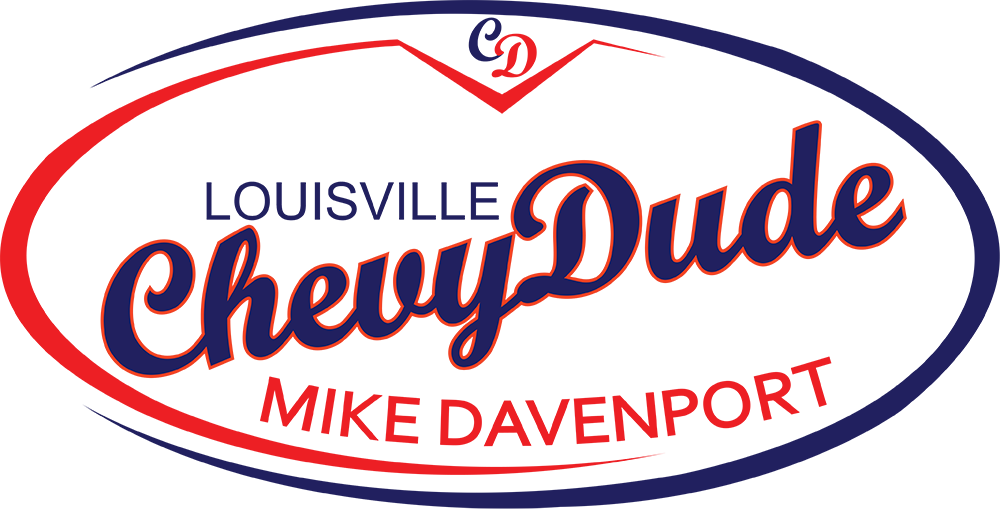The next time you’re in a car dealership, hang out near the manager’s office and look for “The Big Board.” The Big Board is a scoreboard that shows how many cars the dealership has sold that month. It might be a small dry-erase board, or a big grid etched on a glass wall of the sales office. Or. Like my delaership in the managers office on the computer. — it might even be an old fashioned blackboard at the back of the room. Down one side of The Big Board you’ll see all the salespeople’s names, and across the board from left to right you’ll see a bunch of boxes with Xs in them, indicating how many cars each salesman has sold. The guys at the top of The Big Board are the ones with the most cars out; the guys at the bottom are the ones with the least. Some dealerships hide these
boards so the customers can’t see them; others put them right out front so the customers can get involved in the competition. Either way, The Big Board is there for two simple reasons. One is to track sales. The other is to motivate salespeople to sell more cars.
Want to know what it takes to get to the top of The Big Board, month after month?
Well, obviously, you have to sell a lot of cars. And in order to sell a lot of cars you have to be willing to put in a lot of hours. You have to get there early, when the Service Drive opens its doors at 7:30 a.m., and stay there late, until 11 p.m. if need be, to complete a delivery. Absolutely crucial are “people skills” — that is, the ability to talk to, and get along with, a wide variety of people. You need to have knowledge of the product you’re selling, and the ability to think on your feet. Finally, you have to have a great deal of confidence, an even temperament, and a lot of perserverance. A loooot of perserverance. Or, you can just skip all that and do it the way some do it, which is by cultivating the fine art of sucking up.
So while you’re hanging around the sales tower, or the sales desk, or whatever they’re calling it at that particular dealership, take a look and see who’s sitting closest to the general sales manager. You might notice that this fellow doesn’t seem to be doing much . . . except laughing at the general sales manager’s jokes, and talking trash. Or maybe he’s just gotten his bosses lunch and now he’s sitting there, happily munching away on a sub with all the managers, while all the other salesmen eat their lunches in their cubicles, or the employee break room. “Who is this guy?” you might ask yourself. Well, chances are, that guy’s one of the top salesmen on The Big Board, and most likely the resident House Mouse.
In order to explain what a “House Mouse” is, I need to back up a bit. The lifeblood of every dealership are its leads, or customers who might buy a car. Some leads might be “fresh ups,” or new customers who have just walked onto the lot, where they were greeted by salespeople. Or they might be “be backs,” customers who came in a short time ago and have returned to buy a car. Or they might be “phone ups” — customers who call in on the phone or “internet leads” — customers who visited a website, expressing interest in buying a car. These last two categories are often called “house deals,” because the “house”– the dealership– owns these leads until a manager divies them up to individual salespeople to work. House deals are referred to by a variety of names, like “bones,” “tit deals,” or “cheese.” The House Mouse is a salesperson whose
specialty is getting management to give him the “cheese” — the best house deals. So while other salespeople are standing outside on the asphalt, braving the 90-degree heat and 99 percent humidity, waiting for a customer to drive onto the lot and make their day, the House Mouse is chillin’ inside the air conditioned sales office, sitting as close as he can to the source of the cheese — the sales managers.
Of course, if you ask any sales manager what the secret to success in the car business is, they’ll recite the standard party line and tell you that it depends on a proper “Meet & Greet,” following “The Steps of the Sale,” using whatever processes the dealership wants you to use, following up with your customers, watching the lot, and a lot of “hard work.” All that is BS. You need those things to be a successful car salesman, it’s true . . . but all those things on their own will not bring you success without one crucial ingredient. And that ingredient is relationships.
All success in the car business depends on relationships. It depends on the relationships you build with your customers in the short time you’re with them, and it depends on the relationships you build with the people you work for on a daily basis. Namely, the ones in power: the sales managers.
Though they will never acknowledge it, sales managers play a huge role in determining who makes it and who doesn’t in a car dealership. If they don’t like you, they can literally starve you out — deprive you of leads to the point that you’re not making any money, give you insufficient help when you need it, and generally keep you so frustrated and angry that, finally, you quit. Or, they can make you a superstar. If they like you.
Take a mediocre salesman or a “green pea” with so-so skills, little product knowledge, and a tight relationship with a manager, and put him up against an experienced salesman with great skills and excellent product knowledge, but poor relationships with managers, and the guy with the strong relationship with a manager will outsell the seasoned pro every time. The House Mouse recognizes this. And that’s why, early on in their careers, they pick someone in a key position at their dealership and make it their goal to become that guy’s Best Buddy for Life. They’ll fetch ’em biscuits in the morning, Chinese food at lunch, and iced tea or Starbucks in the afternoon. They’ll pick up their dry cleaning, take them to the strip club and buy them lap dances — even chaffeur them around town if the manager gets a D.U.I. and loses his license. And after hours, who is there to commiserate with the manager over a beer as he complains about h
is failed marriage? You guessed it — the House Mouse. In return, their “friend” — the sales manager — rewards them with car deals.
Let me give you an example of how bad it can get. At one place I worked there was a guy whose last name was unpronounceable so he went by the nickname of “C.C.” Month after month C.C. was top of the board– Number One in sales. And he didn’t just beat everybody by a few units– he’d sell twice the number of cars as anyone else. When we left work each night, someone would clean off the smaller “daily board,” the one we used to record that day’s sales. But the next morning when we all came in around 8:30, there would be C.C.’s name on the board — with 3 car deals. The guy was so good he had managed to sell 3 cars while he was sleeping!
In reality, what had happened was, the sales manager who was C.C.’s buddy had come in around 8, looked at all the leads that had come in overnight, contacted the most promising prospects, set up the deals, and put them all in C.C.’s name. In many cases, C.C. hadn’t even met the people he’d “sold” until they walked through the door — the entire negotiation had been handled by the sales manager before they even arrived.
At this point you must be wondering, why would anybody put up with this? Why would anyone endure such blatant favortism and unfairness in the workplace? Well, in part it’s accepted because it’s done in secret, and some people never catch on. If someone does catch on, and has the temerity to confront a House Mouse — as I have — the Mouse immediately runs to his sales manager and tells them what happened, and the manager threatens to fire the offending salesman. Or, if you confront a sales manager about it, they deny it. If you were somehow able to get a manager to admit they were “feeding” a particular salesperson, they would defend it this way: “That guy got those deals because he’s a good salesman.” Because they believe their guy is a better salesperson than anyone else, they give him more leads, and as a result he sells more cars. And then the manager points to the Big Board and says “See? I told you he was a go
od salesman.” That’s the kind of circular logic you get. And that’s the way it goes at most car dealerships. So, after awhile, everyone realizes there’s no point in fighting it. The salespeople see what’s happening and everyone grumbles — yet no one does anything about it. And the strange caravan that is car sales keeps rolling along, with everyone on board pretending their success is all based on merit and hard work.
Republished from a popular auto magazine wrote 3 years ago… thought it would be funny to talk about today in 2017…


